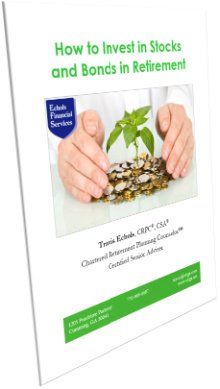"I wish I had done that."

“I wish I had done that.” We all have thought and/or said these words at one time or another. These are words of regret. They express a sense of loss.
“I wish I had taken that job.” “I wish I had gone to college.” “I wish I had studied another subject.” The list goes on and on.
Regret is often counter-productive. For example, in investing, it is not reasonable to blame myself for not concentrating all my assets in that specific stock that skyrocketed last year. Hindsight is 20/20 and regretting not knowing what I could not have known is irrational. There was no flaw in my decision-making, unless I want to blame myself for not being God, who alone is omniscient.
Sometimes thoughts of regret are triggered when I am enlightened in some way...when I’ve learned something important that I didn’t realize before. A light bulb has turned on that I wish had turned on earlier. It may have saved me or someone I care about from unnecessary harm. My “present me” can’t help but wish my “past me” had been smarter and acted differently. This type of regret is normal and inescapable if we are growing in understanding as a human being. I’m sure you’ve heard people quip, “I wish I had known then what I know now.”
Sign up to receive other helpful email articles on retirement planning--free of charge .
A common mistake is confusing the outcome of a decision with the soundness of a decision .People often make foolish decisions that yield wonderful results . For example, let’s take a fictitious couple who have recently retired. Jim and Julie’s combined retirement nest-egg is $1 million. They need their savings to supplement Social Security for their retirement income for the rest of their lives. Instead of diversifying their investments and developing an income plan, they decide to invest their entire life-savings in a small start-up company. It is fraught with risk, but lo and behold, the company turns out to be a success. The stock price soars and their $1 million turns into $10 million in a short period. They cash out and live off of $10 million instead of $1 million. A foolish decision with a happy outcome.
Now, let’s suppose Jim and Julie had approached me with the same offer. But I saw the great risk and declined the offer. I didn’t receive the ten-fold gain. Can I blame myself for a poor decision? No, because often wise decisions can have bad outcomes . Actually in this case, it was not a bad outcome, unless compared to Jim and Julie’s unlikely outcome.
Stories like this do not mean that diversifying and receiving a more modest return (in order to mitigate the risk of a potentially devastating loss) is an error in judgment. There are thousands of opportunities I am not aware of everyday where someone is getting rich. And there are thousands of opportunities everyday where people are losing it all. It is a waste of time and energy to think about such speculative ventures or compare my experience to them.
What I need to concentrate on is my probability of success . What can I do to increase my probability of achieving my goals? I should focus on my decision-making skills. And if I develop those skills rather than searching for the next improbable fantastic opportunity, I will on average make wiser decisions over my lifetime. As a result, I will have a greater outcome than the average speculator and the average person. Making wise decisions over and over again is what gives me the advantage over time.
The outcome of a decision should not be the criterion for judging the soundness of that decision. “Future me” cannot judge “past me” for something “past me” could not have known. The soundness of a decision should be judged by what I did with the information available to me at the time the decision needed to be made . Did I do the research needed? Did I reason properly? Did I resist fallacious and emotional biases? Did I behave in accordance with what I knew to do? Etc.
Notice I didn’t say “at the time the decision was made”. I said, at the time the decision needed to be made . The optimum timing of certain decisions is part of the decision-making process. Rushing to decide and procrastinating are both, in and of themselves, poor decisions.
Also notice, I didn’t say that sound decisions are to be made “with the information I have at the time”. I said, with the information available to me at the time . I may not have enough information to make a sound decision at a given point. I need to do due diligence and gather the relevant data required -- or I need to seek the counsel of someone who has. Willful ignorance is a formula for failure.
As a financial adviser, I frequently hear people say, regretfully, “I wish I had done that earlier.” For these situations, people can start now and maybe double down and catch up. Even worse is, “I wish I had done that” or “I wish I hadn’t done that,” referring to decisions that are irrevocable (whether by commission or omission). They are referring to options available at the time, that would have made a significant improvement to their financial and emotional well-being.
This leaves people with a choice to make:
1.Research all the relevant data
necessary to make sound decisions, or
2.Seek counsel to help make sound decisions, or
3.Make poor decisions and likely have regrets later
Ask yourself, “what can I do today that will make the future me proud of the present me ?”


Travis Echols , CRPC®, CSA
Receive free Social Security Guide by email




Investment Advisory Services offered through JT Stratford, LLC. JT Stratford, LLC and Echols Financial Services, LLC are separate entities.











